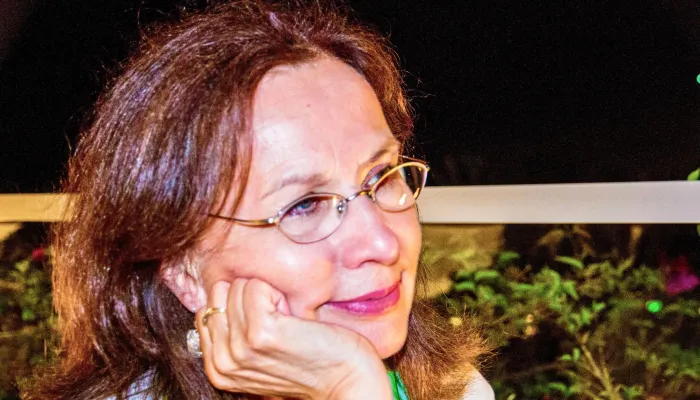Kevin Spenst
Biography
Kevin Spenst (he/him) is the author of 4 full-length books of poetry and 19 chapbooks. An assortment of his lyric essays, interviews with neighbours, and personal accounts from others make up the collection Gathered Together in the Stanley Park Manor: a Collective History, out with Anvil Press in the fall of 2026. He is one of the organizers of the Dead Poets Reading Series, has a chapbook review column for subTerrain magazine, occasionally co-hosts Wax Poetic on Vancouver Co-op Radio, and is one of the poetry ambassadors for Vancouver’s 2025-2027 Poet Laureate Elee Kraljii Gardiner. He is one of the Poetry Mentors at The Writer’s Studio at Simon Fraser University in Vancouver on unceded xʷməθkʷəy̓əm (Musqueam), Sḵwx̱wú7mesh (Squamish) and səl̓ilw̓ətaʔɬ (Tsleil-Waututh) territory where he cohabitates with the one and only Cheryl Rossi.
Micro-interview
I fell in love with poetry in high school thanks to Joan Hall, my English Lit teacher who is still teaching at my old high school. She introduced our class to Wordsworth’s “The World is Too Much with Us.” Its first three lines seemed so contemporary and clued in to the current environmental movement: “The world is too much with us; late and soon, / Getting and spending, we lay waste our powers;— / Little we see in Nature that is ours." I loved how such lovely language could also speak in the voice of environmental outrage. It was one of many poems that I loved as a teen.
I started writing poetry as a teenager. I wrote out of heartbreak and longing, but I didn’t see myself as a poet. In some ways, I still don’t always see myself as a poet. Really, I'm a full-time “maker”; I craft poems, create lesson plans (for my students), help others build chapbooks, concoct jokes and unique voices for performances, and so on and so forth.
A poet’s job is to keep track of feelings, ideas and one’s immediate and wider environment through language that sings and singes into memory.
"Top" is a poem in the collection "Ignite," a book which centers both around my father's lifelong struggle with schizophrenia and how it is that I fail to recall so much of the difficult parts of my childhood. I wrote "Top" by stitching together two rare memories I have of me and my father together. Both of these moments involve being in motion: on his bicycle and on his motorbike. I wrote “Top” almost ten years ago and now when I look back, I see how the poem creates a sense of growing up while spinning off-balance. So many of us have grown up in conditions that were confusing and traumatic. Writing has helped me come to terms with my father’s tragic life and all the holes that it left. Art is where we turn this patchwork into (I hope) some semblance of song.
That is a tough question. All of them would be my first answer, but if it had to be one, I’d say Phoebe Wang’s “Application Form.” I love how it drifts through a drone of formal language into the wildly poetic. It also draws us into the heart of someone undergoing a restrictive application process, thereby bringing us into the experiences of so many new Canadians. What better type of poem to learn by heart?
I'm the author of Jabbering with Bing Bong (Anvil Press) and the chapbooks Pray Goodbye (the Alfred Gustav Press), Retractable (the serif of nottingham), Happy Hollow and the Surrey Suite (self-published), What the Frag Meant (100 tetes press) snap (Pooka Press), and Surrey Sonnets (JackPine press). I've done a one-man show at the Vancouver Fringe Festival and over a hundred readings of his poetry across the country. My work has won the Lush Triumphant Award for Poetry and has most recently appeared in BafterC, Poetry is Dead, Lemon Hound and the anthology Best Canadian Poetry 2014. I am lucky enough to have two vocations: poetry and teaching.


